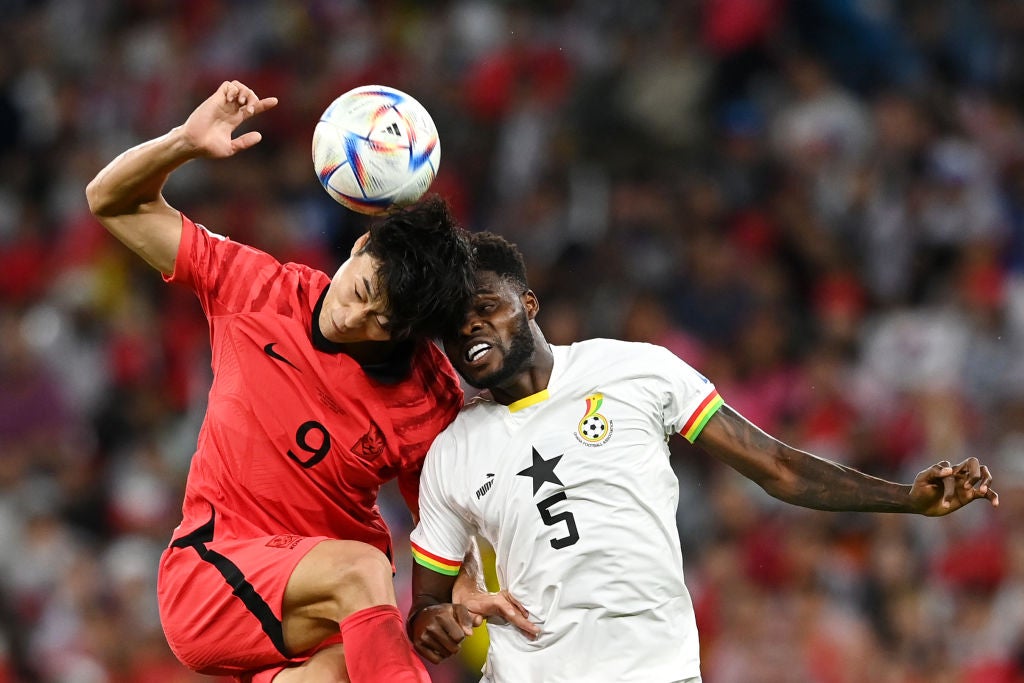Footballers’ brains more likely to decline after age 65, study finds
The research involves 145 former elite footballers including Iwan Roberts, Jeremy Goss and Mark Bright.

Your support helps us to tell the story
From reproductive rights to climate change to Big Tech, The Independent is on the ground when the story is developing. Whether it's investigating the financials of Elon Musk's pro-Trump PAC or producing our latest documentary, 'The A Word', which shines a light on the American women fighting for reproductive rights, we know how important it is to parse out the facts from the messaging.
At such a critical moment in US history, we need reporters on the ground. Your donation allows us to keep sending journalists to speak to both sides of the story.
The Independent is trusted by Americans across the entire political spectrum. And unlike many other quality news outlets, we choose not to lock Americans out of our reporting and analysis with paywalls. We believe quality journalism should be available to everyone, paid for by those who can afford it.
Your support makes all the difference.Footballers are more likely to develop worse brain health over the age of 65 than those in the general population, according to new research published on Friday.
The SCORES Project, which uses online activities to assess individuals’ cognitive function and monitor brain health decline, is based at the University of East Anglia. The study involves 145 former elite footballers including former Norwich stars Iwan Roberts and Jeremy Goss, plus ex-Crystal Palace striker Mark Bright.
It found in the 40-to-50 age group footballers were performing better in the assessments than the “normal” group, but that this was not the case among older individuals.
The new SCORES data follows work done by the FIELD study at the University of Glasgow, which found footballers were three and a half times more likely to die of neurodegenerative disease than age-matched members of the population and has led to calls for greater protection for players against concussion as well as the sub-concussive impacts of heading a ball.
Lead researcher and sports concussion expert Dr Michael Grey said: “What we are seeing is that in the 40-50-year-old age group, the footballers are performing a bit better than the normal group.
“We know that regular exercise is really good for brain health, and our research confirms that professional footballers have improved brain health in their 40s compared with non-footballers.
“The physical exercise associated with professional football keeps their bodies and brains in tip-top shape, and this extends to their retirement.
“But when they get to 65 – that’s when things are starting to go wrong. The over-65s performed worse when assessed for things like reaction time, executive function, and spatial navigation. These are early warning signs for deteriorating brain health.
“This shows us that the exercise associated with playing football is good for the brain, but the negative effects of contact sport do begin to appear later in life.
“These assessments are ongoing, and the participants are being monitored for changing brain health over time, so we will hopefully follow our cohort of former footballers for the rest of their lives. This will give us a really clear picture of the potential damage caused by heading the ball.
“This research highlights the need to investigate ways we can limit the damage to the brain as people play sport and to monitor brain health as we get older.”
The study includes 55 former players aged 65 and over, whose results were compared to the 27 non-playing members of the study group aged 65 and over and also to a normative group containing thousands of participants amalgamated from other studies who have done the same tests.
SCORES – which stands for Screening Cognitive Outcomes after Repetitive head impact Exposure in Sport – is trying to collect more data from former amateur and professional female players, who it fears could be putting themselves at even greater risk of dementia than male players. Currently all the participants in the study are male.
Dr Grey accepts the findings are just a first picture, and that a larger sample size is now essential to provide even deeper insight and more refined age comparisons. He is working with the Professional Footballers’ Association to recruit more participants.
The League Managers Association is one of the project’s partners, as is brain injury charity Headway and the Jeff Astle Foundation.
The founder of the latter charity, Dawn Astle, has long campaigned for greater protection against concussive and sub-concussive injuries among footballers.
Her father Jeff, who spent most of his professional career at West Brom and represented England at the 1970 World Cup, died in 2002 with what the coroner determined to be the progressive brain disease CTE.
The coroner issued a verdict of death by industrial disease, claiming the CTE was caused by Astle’s repeated heading of a ball.
A group of former players and their families – including the family of 1966 World Cup winner Nobby Stiles who died with dementia in 2020 – are suing the football authorities, accusing them of failing to take reasonable action to reduce exposure to concussive and sub-concussive impacts.
Join our commenting forum
Join thought-provoking conversations, follow other Independent readers and see their replies
Comments